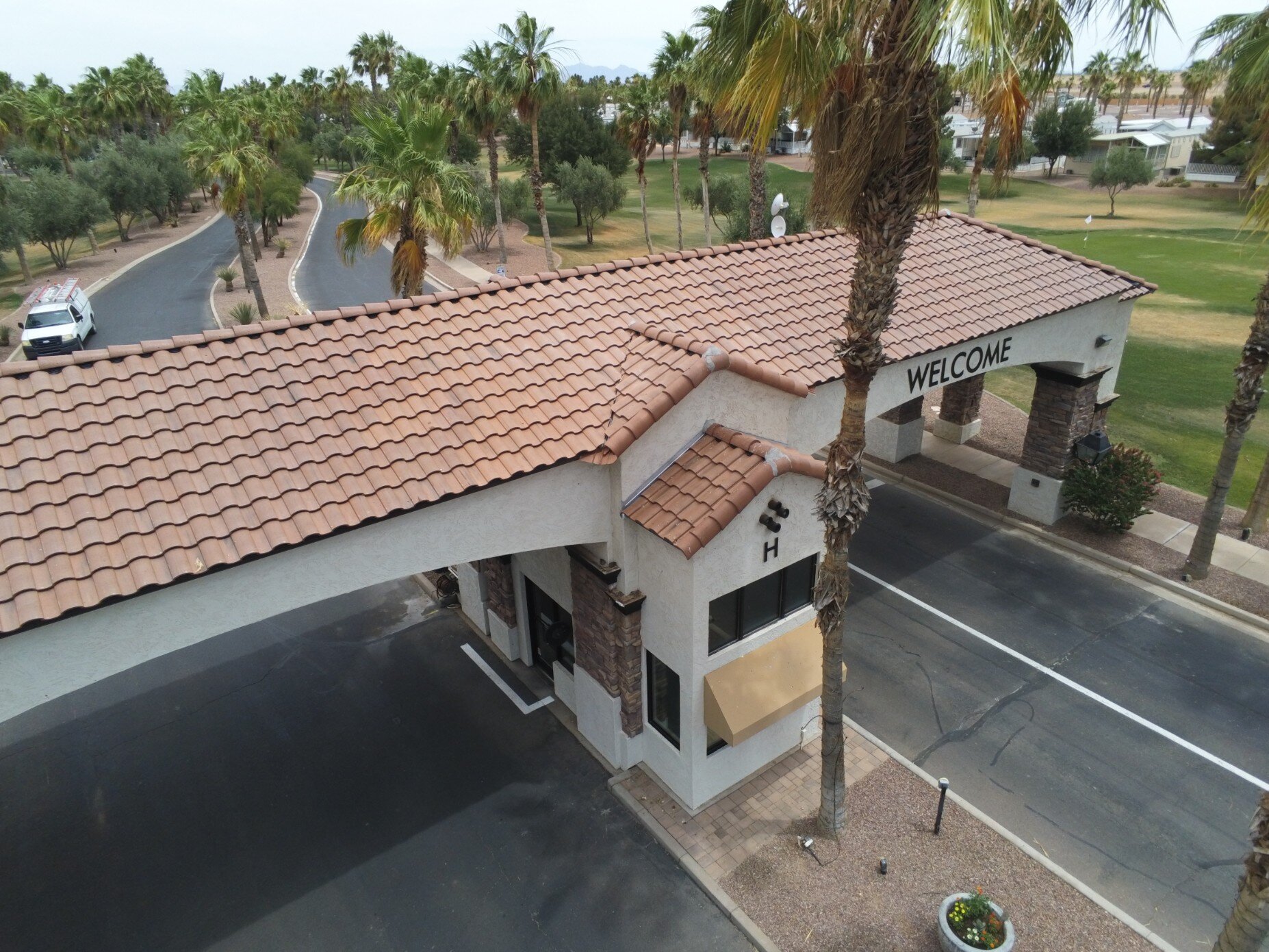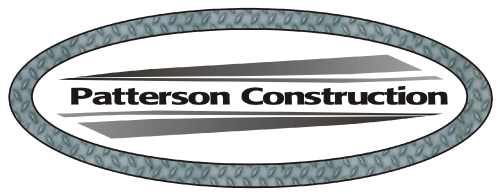
Gilbert, AZ, Commercial Roofing Experts
Serving Gilbert, Chandler, Casa Grande, Mesa , Apache Junction, Ahwatukee, Tempe, Scottsdale, Paradise Valley, and Queen Creek.
Commercial property owners need to make sure their buildings are in good shape. Having a great-looking and strong roof is part of a sensible business strategy. Commercial roofing requires specific building materials that can cover the entire structural framing and prevent any moisture from getting in.
One of the main goals of commercial roofing is to conserve energy and save on utility costs. Commercial roofs typically have a low slope and can even be entirely flat. A traditional commercial roof features shingles made from asphalt, clay, or wood. However, those are now a rare occurrence. Modern commercial roofing requires innovative materials with a more distinct purpose and can be used in versatile ways.
Metal roofing is also popular in commercial roofing and comes with several significant benefits. It can be composed of steel, aluminum, or copper, depending on the property owner's preference.
Regardless of the size of the property, a well-built commercial roof is crucial. The employees and the customers will feel safer and be healthier. Commercial roofing can only be done with the expertise of a roofing contractor and isn't something to try to accomplish alone.
Our goal is to provide the best service for our customers
The difference between commercial roofing and residential roofing
The first and most notable difference between commercial and residential roofing is the design. The fully flat slope is standard for warehouses, factories, restaurants, and various shops. A commercial roof is typically much larger than a residential roof.
Common sights on a commercial roof are the blower outlets, HVAC units, industrial pipes, and even skylights. Residential roofs feature a higher pitch and are often significantly smaller in size. The surface is also typically clear unless a homeowner installs solar panels. Any residential roof opening is minimal and might only have a chimney or skylight.
Commercial roofing requires different types of materials, but the installation process is also not the same as with residential property. The sheer size of the commercial roof might often take a month or more to install. It typically involves layers added in a specific order.
Residential roofing is a more straightforward process and may only take a few days on average. The variety of commercial roofing systems alone requires specific knowledge and experience. Residential roofing mainly revolves around a few different types of shingles.
Types of Commercial Roofing Systems
Built-Up Roofing or BUR Membrane
Commercial property owners often choose built-up roofing membrane because it's affordable and easy to install. With some care, this type of roofing system can last over 20 years. It's made with alternating layers of gravel and tar. The number of layers can vary, and it affects the final price of the roofing. It's a UV-resistant material that reflects heat very well. On the other hand, the BUR membrane is not as durable as some other materials.
Metal Roofing
Metal roofing is a popular choice for both commercial and residential properties. Clients can choose between metal sheets, galvanized steel, copper, aluminum, zinc, tin, and much more. Metal roofing is undoubtedly a durable option with multiple protective layers and excellent heat protection; it's also one of the most aesthetically attractive options for commercial properties. With metal roofing, business owners get a chance to choose a more sustainable option of recycled materials.
Modified Bitumen Roofing
Another term for modified bitumen roofing is mod-bit roofing. It's a type of commercial roofing system that uses reinforced roof fabrics and adds layers of bitumen. Commercial roofing contractors rely on a two-ply fastened system to enhance stability and protection. A great feature of mod-bit roofing is that it's relatively easy to maintain. It's also the top choice for the type of business that expects a significant amount of activity.
Thermoset or EPDM Roof Membrane
The EPDM roof membrane is a fantastic choice for those looking for a long-lasting and versatile commercial roofing system. It's single-ply rubber and is easy to install and maintain compared to many other types of commercial roofing. It has powerful resistance to acids and solvents and is quite flexible in a colder climate. Additionally, it's UV-resistant and can help reduce cooling expenses.
Thermoplastic or PVC & TPO Roof Membrane
For commercial property owners looking for a second-generation application, PVC and TPO roof membranes are excellent options. Not only do they provide great value, but there are also other benefits to consider. For example, the thermoplastic PVC and TPO roof membranes are super lightweight and highly resistant to bacterial growth. They're also UV resistant and not easy to puncture. Typically, roofing contractors recommend them for restaurants, hotels, and other businesses with oil going through their ventilation.
Spray Polyurethane Foam (SPF) Roofing
Another popular option for commercial roofing is the SPF roofing system. The material used is called Spray Polyurethane Foam, but it starts as a liquid. Once sprayed, it expands into foam and creates a solid layer across the entire commercial roof. It's a system that has been around for 50 years and is still widely used in commercial roofing. It's energy-efficient, seamless, and waterproof. It's also relatively simple to maintain.
Commercial Roof Installation, Replacement, and Repairs by the experts
Commercial roofing is a complex project that requires thorough consideration beforehand. It's not a DIY challenge in any way and can even be dangerous if attempted without proper skills. Fortunately, roofing contractors have extensive previous experience in commercial roofing, so the process doesn't need to be cumbersome. When expertise meets efficiency, the commercial space can be opened for business as soon as possible.



